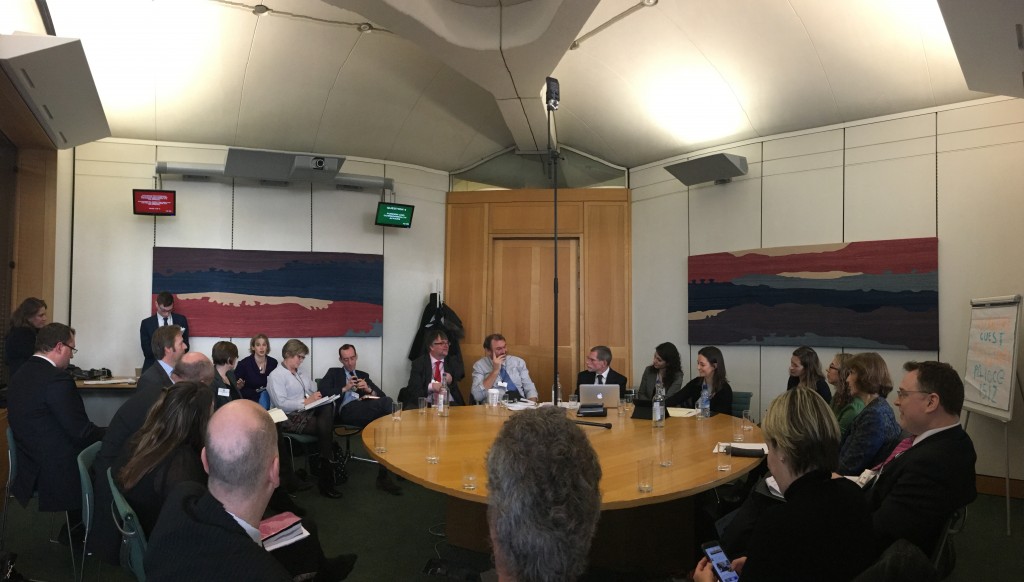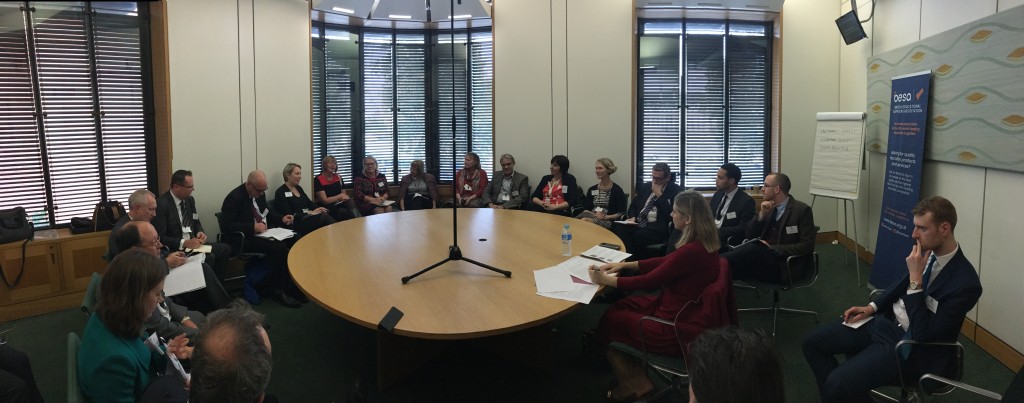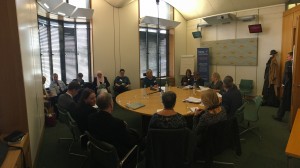On 22nd November 2016, the APPG for Education hosted the third and final discussion in a series of roundtable events as part of its inquiry in to how well British schools are preparing young people for their future careers.
The roundtable focused on what is required to increase the uptake of Science, Technology, Engineering and Maths, the so called STEM subjects, as well as how to increase the number and quality of STEM teachers and possible ways to transform the gendered nature of STEM subjects to encourage more female uptake. The discussion was chaired by Carol Monaghan MP, a former physics teacher and the SNP’s Westminster Education Spokesperson. It followed two roundtables in October that featured discussions examining where the focus should lie in schools between teaching academic subject knowledge and soft skills, and the availability, quality and effectiveness of current careers advice and guidance students receive from their schools. The APPG welcomed guests from industry, assessment boards and the teaching profession.
One of the main focuses of debate was the role that early specialisation plays in children prioritising other subjects ahead of STEM. It was argued that many nations across the world do not require young students to take as many examinations as the British and that their examinations are less narrowly focussed. However, this was countered by members of examination boards and Ofqual, who stated emphatically that this was not the case; it was stressed that A Levels are far from atypical. This was generally accepted but many still emphasised the issue of specialisation at younger ages, with the Key Stage One and Two examinations referenced most often. It was recommended by various members that the Key Stage examinations should include an element of science that they currently lack.
The perceived gendered nature of STEM subjects was anticipated to be a catalyst for enthusiastic debate and this proved to be the case. It was advanced that women and girls self-deselect from STEM subjects and that a way to alleviate this is to open up students’ eyes to the possible career options that go far beyond stereotypical images of engineering. However, it was argued that this was not necessarily just a school problem but more of a societal one that requires wider solutions. This was evidenced by the fact that the uptake of physics by females has remained constant over the last thirty years, despite many policy and curriculum changes.
The final issue that attracted considerable debate was that of the lack of teachers. It was suggested that only forty percent of the required number of STEM subject teachers were available and that was a root cause of the issues the country faces when it comes to STEM. Currently, unqualified teachers fill those gaps and the students suffer as a result, leading to less enthusiasm for STEM. Some participants suggested that teachers take night-time training on one of a number of free courses but those within schools responded by stating that teachers are already operating on limited schedules. Others suggested that academies must pay the teachers what they deserve to correct this. It was also recommended that STEM subjects should be taught more widely at primary school level.
This concluded the debate and the series of roundtable in general. Having already collected written evidence, the APPG will now produce a report and recommendations to government, for publication early in 2017.



